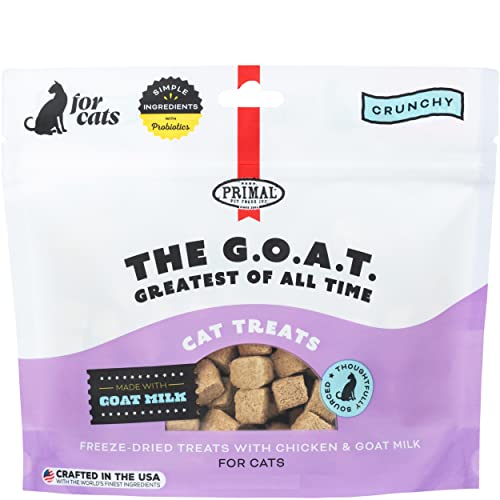Best Hay for Goats in Winter
This list of the best hay for goats in winter will help you give your herd the fuel they need to withstand the cold temperatures. Food matters, especially hay, so know what to feed for a hardy herd of dairy goats.
How to raise dairy goats in the healthiest way season by season.
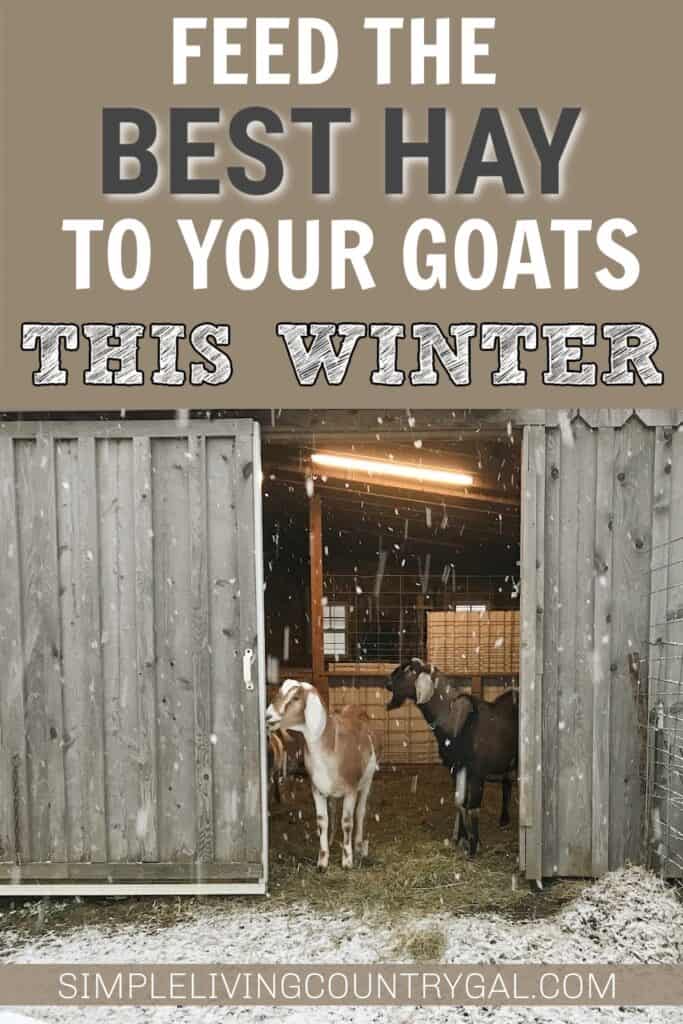
Why is hay important in the winter?
A healthy, active goat can usually tolerate pretty cold temperatures in the winter and hay plays an important role. As temperatures drop, goats require more energy to stay warm. Feeding them high-quality hay will provide them with the necessary nutrients and energy they need to thrive even when the snow is falling outside.
Goats have a unique digestive system and require specialized diets to maintain their health. This is especially true during winter when the availability of fresh pasture is limited. As temperatures drop, goats will not be able to graze and will instead rely on stored hay for nutrition. That’s why it’s important to provide them with the right type of hay in order to meet their nutritional needs.
The Nutritional Needs of Goats in Winter
When selecting hay for goats in winter, it’s important to understand what they need nutritionally. As a general rule, dairy goats require a diet that is high in fiber, protein, and energy.
- Fiber helps with digestion and provides energy.
- Protein is important for muscle development and overall health.
- Energy is crucial as it keeps the goats warm and active during the colder months.
In colder weather, goats need more calories to maintain their body temperature. They also require extra energy to produce milk if they are lactating. Choosing hay that is high in digestible fiber and energy content will help your goats stay warm and continue to produce milk.
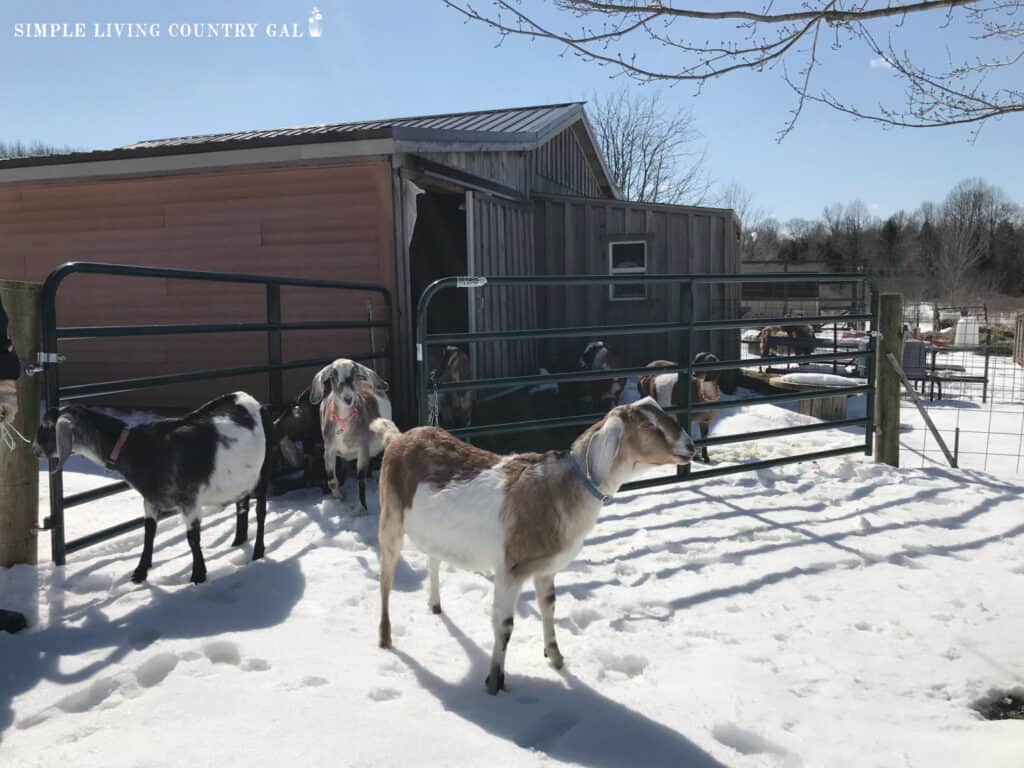
What about minerals?
Minerals are essential for goats’ overall health and well-being. During the winter, it’s important to provide them with a mineral supplement in addition to their hay diet. This is because stored hay may not contain all the necessary minerals that fresh pasture would. A lack of minerals can lead to health issues such as poor growth or reproduction, a weakened immune system, and other deficiencies.
Best Hay for Goats in Winter
Let’s take a look at our top picks for hay options to feed to your goats in the winter months.
#1. Alfalfa Hay
Alfalfa hay is a popular choice for goats in winter due to its high protein and energy content. It also has a good amount of calcium, which is important for strong bones and milk production. However, it can be too rich for some goats and cause issues such as bloat or urinary calculi if fed in excess.
How to Find it: Alfalfa hay can be found at most feed stores or purchased online. It’s important to choose high-quality hay that is free from mold and dust.
Characteristics: Alfalfa hay is easily recognizable by its bright green color and leafy appearance. It also has a distinct smell that most goats will find appealing.
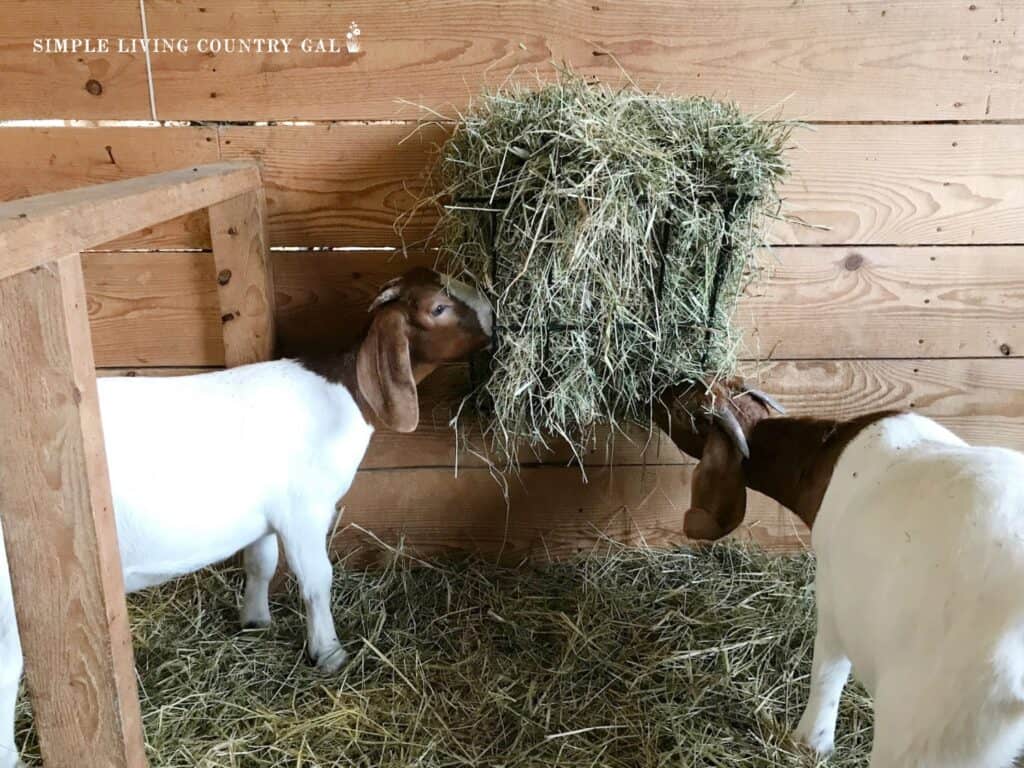
#2. Timothy Hay
Timothy hay is a great option for goats in winter as it provides ample amounts of energy without being too rich. It also has a good balance of protein, fiber, and calcium.
How to Find it: Timothy hay can also be found at most feed stores or purchased online. Look for hay that is green and free from dust and mold.
Characteristics: Timothy hay has a soft, fine texture and a slight sweet smell. It’s also known for its long stems, which are great for goats to chew on.
#3. Orchard Grass Hay
Orchard grass hay is another suitable option for goats in winter. It has a similar nutritional profile to timothy hay and is often more readily available.
How to Find it: Orchard grass hay can be found at most feed stores or purchased online. Look for hay that is green and free from dust and mold.
Characteristics: Orchard grass hay has a coarser texture compared to timothy hay, but it still provides a good amount of fiber and energy. It also has a slightly sweeter smell than other types of hay.
Primal Freeze Dried Chicken Cat Treats, Made with Goat Milk The Goat Treats for Cats, 2 oz



The Different Cuts of Hay
Hay can come in different cuts, which refers to the length of the hay strands. Some common hay cuts for goats include:
- First Cut: This is the first harvest of the season and typically has a higher fiber content.
- Second Cut: This is the second harvest and tends to have more leafy material and less stem.
- Third Cut: This is the third harvest and is the most nutrient-rich cut with a higher protein content.
When selecting hay for your goats, consider their specific needs and choose the appropriate cut based on their dietary requirements. For example, lactating does may benefit from a third cut hay to support milk production while younger or pregnant goats may do well with a first or second cut hay for added fiber and energy.
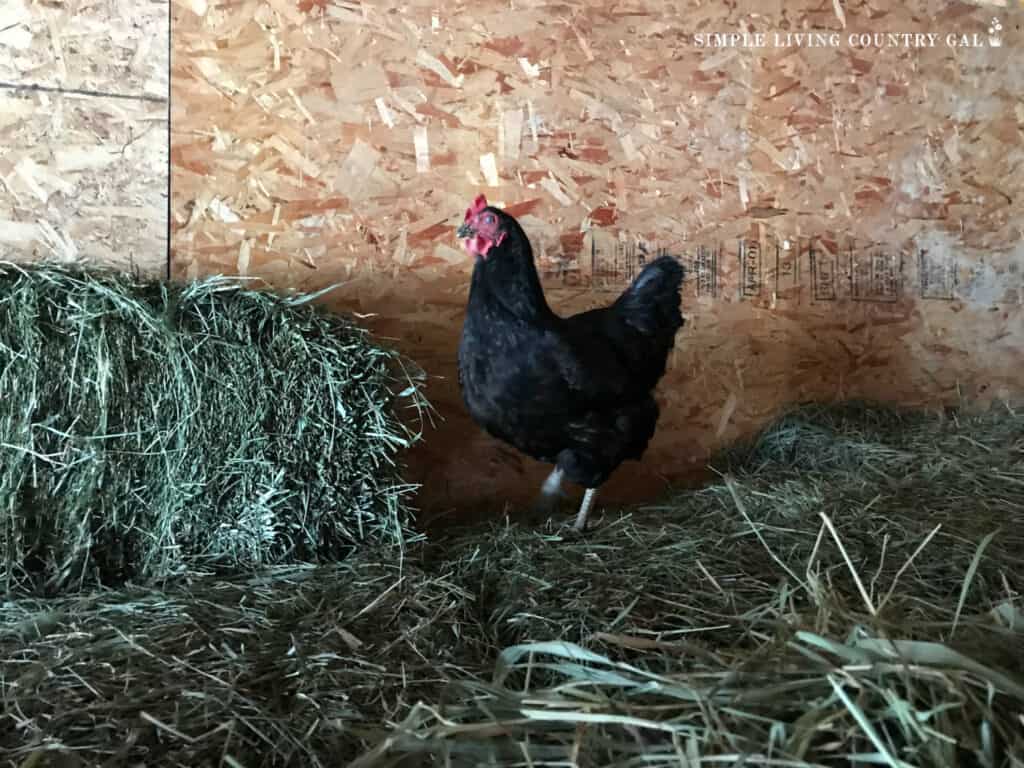
How to Check For Quality Hay
When shopping for hay, it’s important to carefully inspect the quality before making a purchase. Here are some tips for checking for quality hay:
- Look for a bright green color: This indicates that the hay was harvested at its peak and has retained its nutrients.
- Avoid yellow or brown hay: These can be signs of mold or age, which can decrease the nutritional value of the hay.
- Check for dust and mold: Moldy hay can be harmful to goats and should be avoided at all costs.
- Smell the hay: A sweet, fresh smell is a good indicator of quality hay. Musty or foul odors may also indicate mold or spoilage.
By taking the time to inspect any hay before you purchase, you can ensure your goats get the necessary nutrients. Be sure to store any hay you purchase properly in a clean and dry area. Moisture is bad when it comes to hay, something to keep in mind.
Finally, do a hay check every few weeks to inspect your supply, looking for signs of mold or spoilage.
SLCG Pro Tip: If you notice any changes in your goat’s health or behavior after switching to a new batch of hay, check your supply and see if there are any signs of poor quality. You can also give your vet a call and see if they have any suggestions to help.
Hay is an essential part of a goat’s diet; selecting the best hay for goats in winter will support your herd in a healthy way. By understanding the different cuts of hay and how to check for quality, you can ensure that your goats receive the necessary nutrients they need to thrive.

